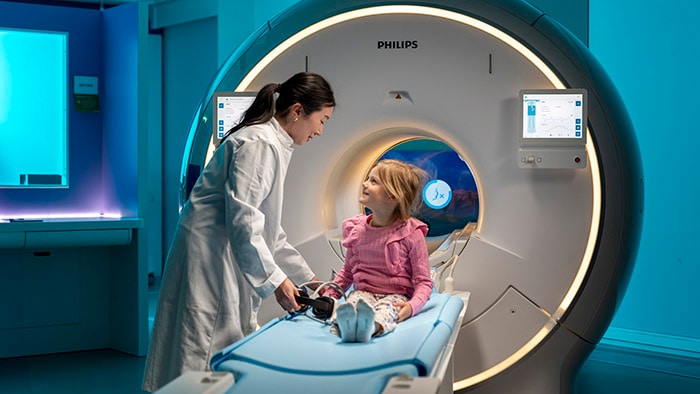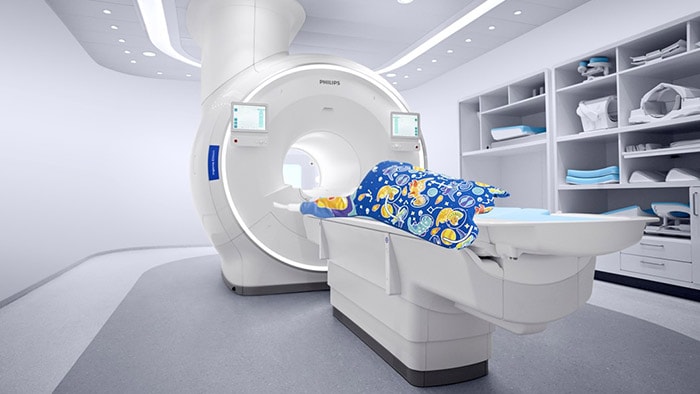Equitable access to care for mothers and children
Dec 11, 2023 | 3 minute read
The chances of a mother or baby surviving childbirth should not depend on where the birth takes place, but too often it does [1]. Every day more than 800 women around the world die – about one woman every two minutes – from mostly preventable causes related to pregnancy and childbirth [2]. In 2020, approximately 87% of the hundreds of thousands who died during pregnancy or childbirth were women in sub-Saharan Africa and Southern Asia [3]. Sub-Saharan Africa also has the highest neonatal mortality rate in the world and accounts for 43% of the 2.4 million newborns in 2020 who did not survive globally, many of whom suffered from conditions associated with lack of quality care [4].
We cannot allow this to continue.
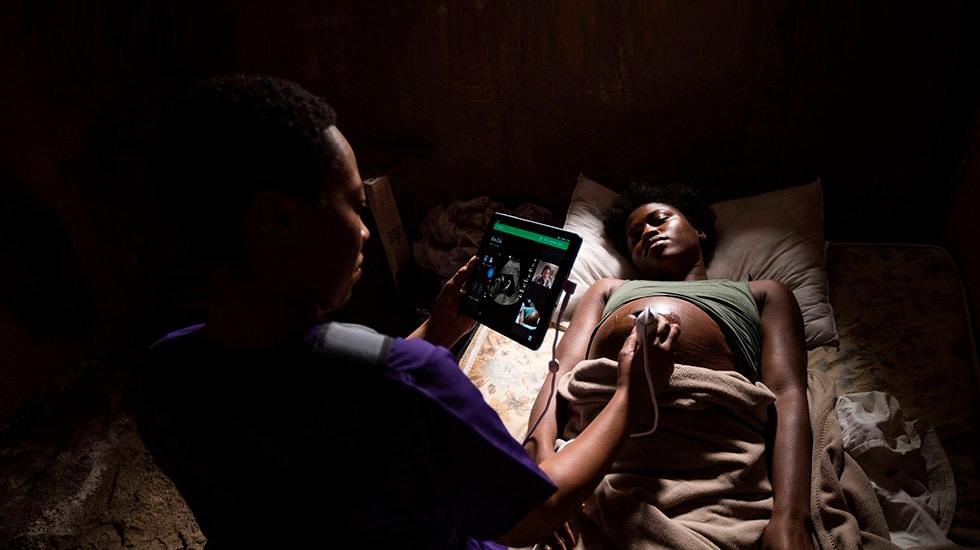
I grew up in rural Kenya with parents who were passionate about supporting good health for all mothers and children. I still remember the difficulties people faced getting the medical care they needed. Today, I am grateful to have the privilege to work at a leading health technology company, where I get to be part of collaborative efforts to make healthcare more equitable and accessible.
At Philips, our purpose is to improve people’s health and well-being through meaningful innovation. We aim to improve the lives of 2.5 billion people a year by 2030, including 400 million in underserved communities. Setting specific targets in underserved communities helps us make an impact in places where care is most needed.
Our commitment to access to care is close to my heart. The need is urgent to ensure everyone in the world – especially mothers and children – can live healthy lives.
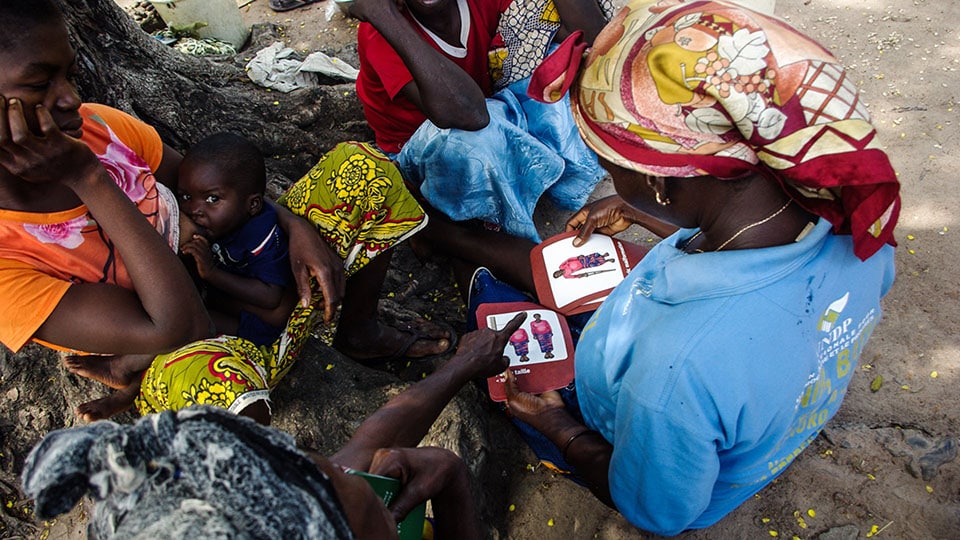
Innovating for equitable maternal and child healthcare
A staggering 95% of maternal deaths occur in low- and middle-income countries [5]. My father spent much of his life studying this problem and published Maternal and Child Health in Rural Kenya: An Epidemiological Study in 1984, which includes collected data on nutrition, health behaviors and attitudes, and maternal and perinatal mortality in rural Kenya. Studies like his show the considerable influence social determinants have on health outcomes [6].
Health education, for example, can be a significant factor in maternal and child outcomes [7]. To help increase health literacy and encourage healthy behaviors, Philips and Philips Foundation developed high-risk pregnancy referral cards. Tested illustrations support important conversations between caregivers (e.g., midwives, community health workers, birth companions) and pregnant women, like how to recognize the signs of high-risk pregnancy.
The cards help raise awareness around healthy pregnancy habits and the importance of antenatal check-ups and safe delivery in healthcare facilities. After validating the efficacy of the high-risk pregnancy referral cards, the International Committee of the Red Cross distributed 2,350 sets of referral cards across six African countries. As well, the Kenya Red Cross Society made the cards available in four counties in Kenya, reaching more than 280,000 women.
Beyond education and support, access to basic equipment for routine care – and to manage complications – can be a challenge. Ultrasound, for example, is still not sufficiently available in many rural and remote areas, despite the WHO recommendation that every pregnant woman should receive at least one ultrasound exam during pregnancy [8].
Thanks to a funding boost from the Bill & Melinda Gates Foundation, Philips has developed and can now accelerate a set of new AI-driven algorithms on the Philips Lumify Handheld Ultrasound. These algorithms can identify six critical parameters in prenatal ultrasound exams to provide expectant mothers with a health check of their unborn baby. Thanks to digitalization, informatics, and AI, interpretation of the images is no longer required by the operator, which reduces the training needed to perform the exam. Aimed as a tool to support early intervention, where concerns may be raised for expectant mothers, a second opinion can be obtained through an existing antenatal referral process to health centers, where comprehensive obstetric ultrasound expertise exists.
To-date, the first pilot, in collaboration with Aga Khan University and the Kilifi County Ministry of Health in clinical sites in Kilifi County, Kenya, has shown initial positive feedback, with ongoing data collection, interpretation and review. With the development of this prototype solution, Philips’ aim is to help reduce maternal mortality and morbidity and, potentially, transform the delivery of maternal care by enabling rollout of this solution to wherever it is needed across the world.
Philips and Philips Foundation, in collaboration with local government, academic, and clinical partners, are exploring scalable, evidence-based models to improve access to obstetric ultrasound services in underserved communities. Through innovative partnerships, Philips Foundation has made significant strides over the past five years toward bridging maternal care gaps in Sub-Saharan Africa.
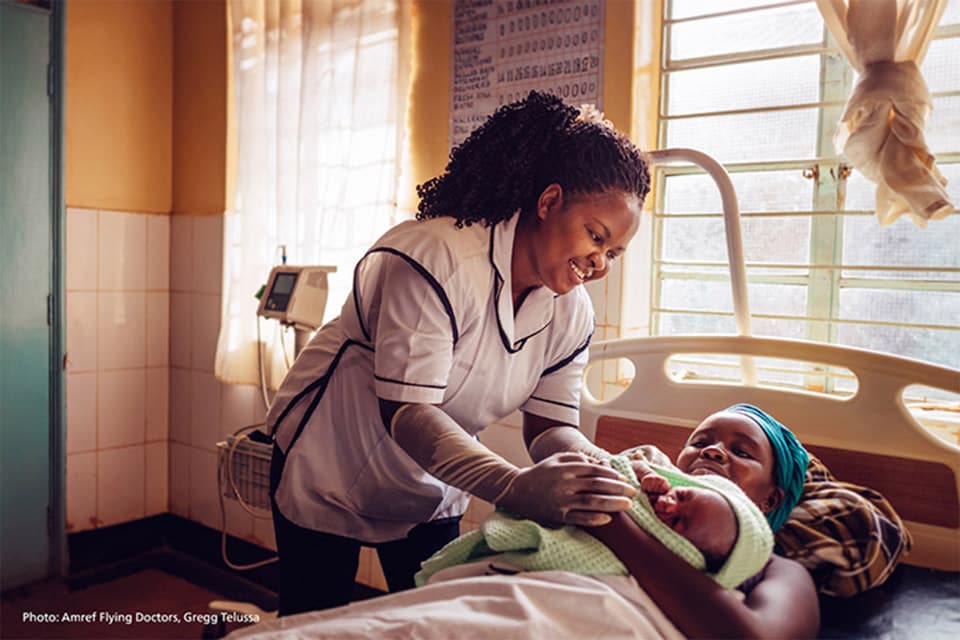
Partnering to tackle complex global challenges
From health inequities to climate change, the world is facing complex challenges that neither the public nor private sector can solve alone. Shared-value partnerships can create comprehensive solutions that bring together technologies, capacity training, and other critical elements for sustained impact. Collaboration is key to delivering results that can be sustained in the long term.
Many years ago, my mother started an NGO that supported Kenyan women in breastfeeding. Today, we are more aware than ever of the health benefits of breastmilk for babies [9]. When infants are admitted to a hospital, the World Health Organization (WHO) recommends feeding donor human milk provided by a human milk bank when a mother’s own milk is not available [10]. In India and Eastern Africa, Philips and Philips Foundation have partnered with nonprofit PATH to provide newborns in neonatal centers with access to human milk through the Human Milk Bank project [11].
Together, we continue to learn, collaborate, and innovate to improve access to care for mothers and children around the world. Collaborative platforms like the Partnership for Maternal, Newborn and Child Health and the Digital Connected Care Coalition provide opportunities to contribute to the digital transformation of health in low- and middle-income countries and make equitable maternal health services more available and affordable.
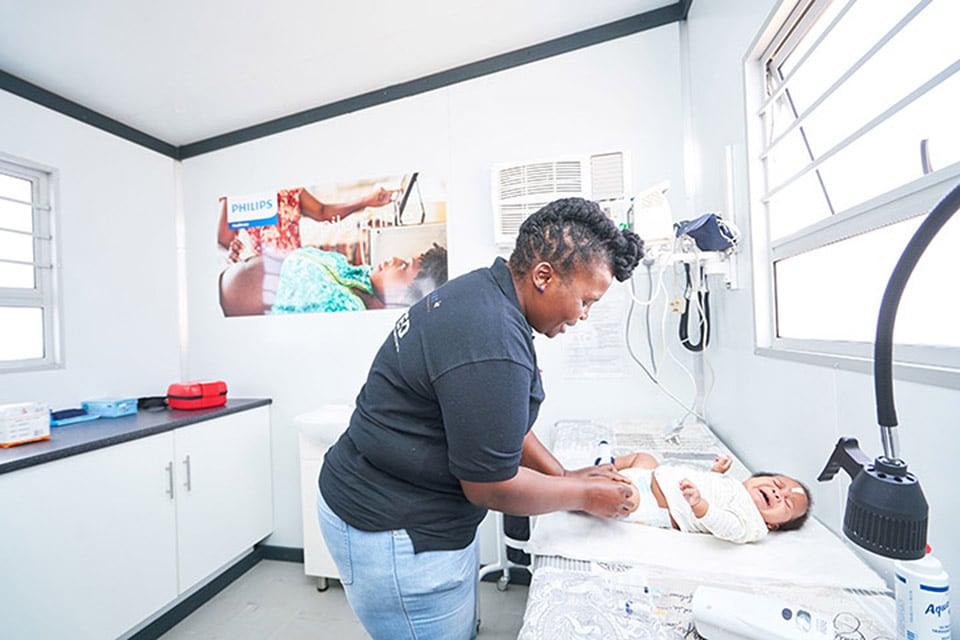
Expanding access in underserved communities – part of our ESG approach
Caring for people is not new for Philips. For over 130 years, Philips has been committed to running a sustainable, people-centered business. Positive social impact is part of our company-wide Environmental, Social and Governance (ESG) approach, and expanding access to care in underserved communities is at the core of our global social impact efforts.
In alignment with the United Nations Sustainable Development Goals (3, 12, 13, and 17), we aim to deliver health technology solutions that are sustainable, equitable and scalable.
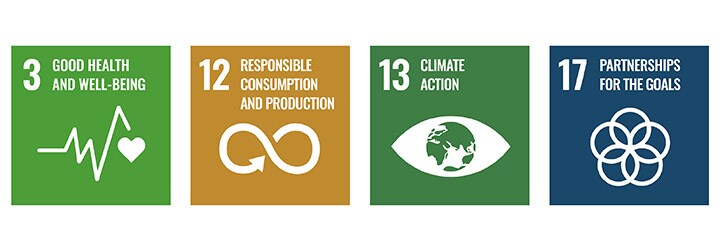
Philips’ purpose and action plan support United Nations Sustainable Development Goals 3 (Good health and well-being), 12 (Responsible consumption and production), 13 (Climate action) and 17 (Partnerships for the goals).
The creation of the role of Chief ESG & Legal Officer illustrates how serious we are at Philips about elevating and embedding ESG across the organization. Moving ahead, I look forward to continuing our efforts to minimize environmental impact across our value chain, while at the same time stepping up our social and governance endeavors. And doing more to leverage our work across the entire business to make sure everyone – no matter who they are or where they live – can access quality healthcare.
Delivering on our commitments to make a lasting difference
My early life and exposure to my parents’ work, in addition to my own professional experience, has made me acutely aware of the unique health challenges mothers and children face in low-resource settings. As a health tech company, Philips can play an important role in expanding equitable access to healthcare in underserved communities – while acting responsibly and sustainably towards people and the planet.
In 2022, Philips improved the lives of 1.81 billion people, including 202 million lives in medically underserved communities. We’re making progress, but there is still a lot of work to do to ensure everyone – including all mothers and children – can access the quality healthcare they need.
Sources [1] UNICEF, Neonatal mortality data, January 2023. World Health Organization, Maternal mortality fact sheet, February 2023.
[2] UNFPA, Maternal health, May 2022.
[3] World Health Organization, Maternal mortality fact sheet, February 2023.
[4] World Health Organization, Newborn mortality fact sheet, January 2022.
[5] World Health Organization, Maternal mortality fact sheet, February 2023.
[6] U.S. Department of Health and Human Services, Social Determinants of Health. Institute of Health Equity, Action on the Social Determinants of Health, 2022. World Health Organization, Social determinants of health, 2022.
[7] Prasetyo, Y.B., Permatasari, P. & Susanti, H.D. The effect of mothers’ nutritional education and knowledge on children’s nutritional status: a systematic review. April 2023.
[8] In their 2016 guideline WHO recommendations on antenatal care for a positive pregnancy experience, the World Health Organization recommends that pregnant women undergo at least one ultrasound scan, preferably in the first 24 weeks of pregnancy, to accurately estimate gestational age, detect fetal anomalies, and improve a woman’s overall pregnancy experience.
[9] The Lancet, Breastfeeding series, January 2016.
[10] World Health Organization, Implementation guidance: protecting, promoting, and supporting breastfeeding in facilities providing maternity and newborn services, January 2018.
[11] PATH, Helping Every Baby Receive Human Milk, November 2016.
Last updated December 11, 2023. Originally published September 8, 2023.


